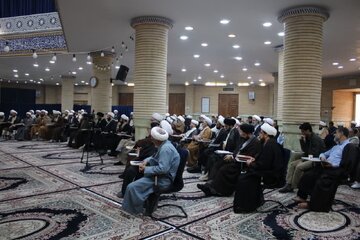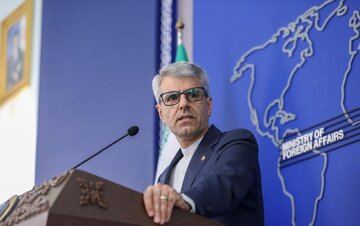وفقا لما أفادته وكالة أنباء أهل البيت (ع) الدولية ــ أبنا ــ وقعت انفجارات في 3 حافلات في نقاط متعددة في منطقة "بات يام"، جنوبي "تل أبيب"، مساء أمس الخميس، بحسب ما أعلنت شرطة الاحتلال الإسرائيلي.
ووفق صحيفة "يديعوت أحرونوت" الإسرائيلية، وقع الانفجار الأول في ساحة انتظارـ قرب الإستاد في "بات يام"، بينما وقع الثاني في ساحة انتظار على بعد 400 متر عن الموقع الأول، والثالث في ساحة أخرى تبعد 4 كلم عن الموقعين السابقين.
وتم العثور على عبوات ناسفة في مواقع أخرى، جنوبي "تل أبيب"، وعلى جسم مشبوه في محطة قطارات "تل أبيب"، بحسب ما أوردت وسائل إعلام إسرائيلية.
ونقلت القناة "الـ 12"، عن مصادر، أنّ وزن القنبلة الواحدة، من القنابل الموضوعة في الحافلات، يصل إلى 5 كلغ.
وذكر إعلام إسرائيلي أنّه كان من المفترض أن تنفجر 15 حافلةً، عند التاسعة صباحاً، في منطقة "غوش دان"، بالتزامن مع تنفيذ 5 مقاومين عمليةً استشهاديةً في القطار.
ونقل موقع "والاه" الإسرائيلي أنّ هذا الحدث هو عملية فدائية، بينما قال قائد منطقة "تل أبيب"، في الشرطة الإسرائيلية، إنّ "طبيعة العبوات الناسفة تشير إلى أنّها صُنعت في الأراضي الفلسطينية"، معلناً أنّه "تم إرسال قوات من الاحتياط إلى عدد كبير من النقاط".
وبحسب ما أوردت وسائل إعلام إسرائيلية، فإنّ "الأمر يتعلق ببنية تحتية" للمقاومة، خرجت من الضفة الغربية.
وكُتب على بعض العبوات: "حزب الله، نصر الله، السنوار، وانتقامٌ من طولكرم"، وفقاً لما ذكره إعلام إسرائيلي.
وأعقبت الحدث حالةُ ذعر في صفوف المستوطنين الإسرائيليين في "تل أبيب"، في حين تم الطلب إلى جميع سائقي الحافلات في "بات يام" التوقف فوراً، وفتح الأبواب، وإجراء فحص أمني، كما أعلنت إذاعة "جيش" الاحتلال.
واستدعت الانفجارات في الحافلات اتخاذ عدة تدابير، شملت وقف حركة القطارات، وتكثيف الإجراءات الأمنية، وتشديد الإجراءات في مطار "بن غوريون"، وإجراء فحص دقيق لجميع القادمين إليه.
في غضون ذلك، نقلت صحيفة "إسرائيل هيوم"، عن مسؤول في مكتب رئيس الحكومة، أنّ نتنياهو "أمر بتنفيذ عملية هجومية على الضفة الغربية، عقب تفجير الحافلات".
وأوضح المسؤول أنّ نتنياهو ينظر إلى تفجير الحافلات على أنّه "على درجة كبيرة من الخطورة". وعلى خلفية الحادثة، طالب وزارء في الحكومة الإسرائيلية بإقالة رئيس جهاز "الشاباك".
ومن المقرر أن تُعقد قريباً مشاورات أمنية بين نتنياهو ووزير الأمن الإسرائيلي، يسرائيل كاتس، وكبار المسؤولين في وزارة الأمن.
..................
انتهى / 232






تعليقك